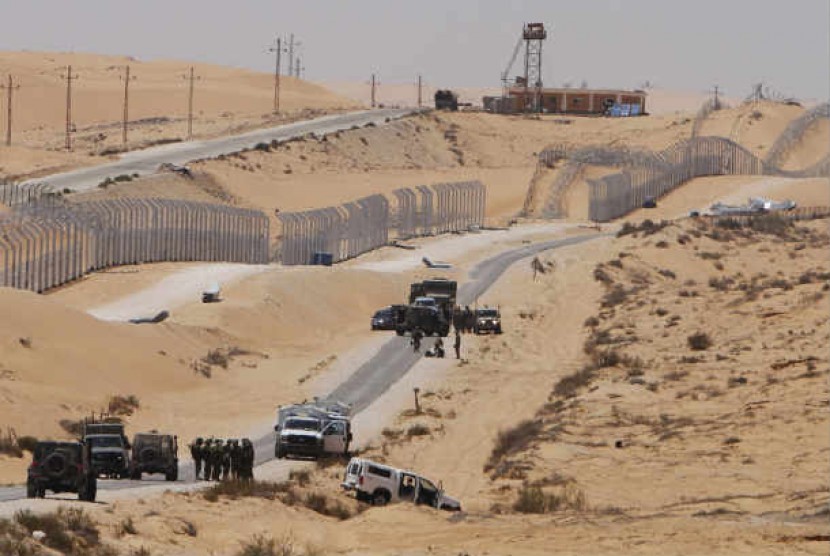REPUBLIKA.CO.ID, JERUSALEM - Israel is quietly and carefully watching the turmoil in neighboring Egypt while maintaining close contacts with the Egyptian military amid concerns that the escalating crisis could weaken their common battle against Islamic militants in the Sinai Peninsula, officials said, reported on Monday.
As the week's death toll in Egypt rises, this alliance has put Israel in a delicate position. Wary of being seen as taking sides in the Egyptian military's standoff against Islamist supporters of the ousted president, Israel also needs the Egyptian army to maintain quiet along their shared border — and to preserve a historic peace treaty.
The 1979 peace treaty, Israel's first with an Arab country, has been a cornerstone of regional security for three decades. It has allowed Israel to divert resources to volatile fronts with Syria, Lebanon and the Palestinian territories.
For Egypt, it opened the way to billions of dollars in US military aid. According to foreignpolicy.com, military regime in Cairo had found an awkward ally in the form of AIPAC, the influential pro-Israel lobby firm that is actively pushing for continued US aid to Egypt. The site also says America's 1.3 billion USD package is annual US military assistance to Egypt considered as an incentive to maintain peace with Israel.
Although diplomatic relations have never been close, the two militaries have had a good working relationship. These ties have only strengthened since longtime President Hosni Mubarak was ousted in a popular uprising two and a half years ago. With both armies battling Jihadi groups in the Sinai Peninsula, near the Israeli border, Israeli security officials often say that relations with their Egyptian counterparts are stronger than ever.
With so much at stake, Israel has remained quiet since the Egyptian military ousted Mubarak's Islamist successor, Mohammed Mursi, in a coup on July 3. Mursi, who became Egypt's first democratically elected president, hails from the Muslim Brotherhood, an Islamist group considered the parent organization of alestinian Hamas that rules the Gaza Strip and is a bitter enemy of Israel.
"Israel does not have to support the (Egyptian) regime, especially not publicly. It is not our place to defend all the measures taken, this is not our business," said Giora Eiland, a former chairman of Israel's National Security Council.
At the same time, Eiland suggested that international condemnations of the Egyptian military's actions have been excessive. He said Israeli and Western interests are "much closer" to the interests of Egypt's military leader, Gen. Abdel-Fatah el-Sissi and his secular allies.


